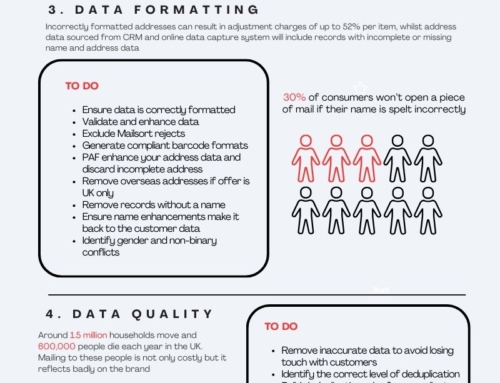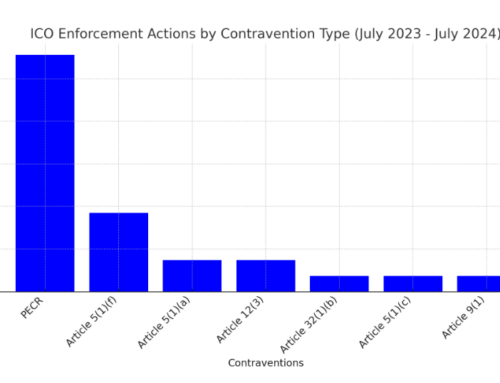New research from housing specialists Hillarys.co.uk reveals the horrifying truth that a staggering 40 per cent of UK homeowners only clean their house once a year with five per cent admitting to only cleaning if they have guests coming to stay overnight. The most common excuses were a lack of cleaning products and inertia caused by the fact that the house is only going to get dirty again, so what is the point? However, researchers from The London School of Tropical Disease and Medicine say that there is increasing evidence to suggest that a messy house affects both mental and physical health. In fact, an unclean home can make you more susceptible to colds and flus as well as stress and anxiety. To keep germs and mess at bay it is recommended that householders conduct a thorough whole house clean on a quarterly basis, with daily top ups where needed, in between.
Another entity which should be cleaned on a quarterly basis; as recommended by the DMA and ICO, is customer data. However, all too often organisations take the same approach at the five per cent of people that only clean because they must. Or in data terms a cleanse is only carried out because a campaign is being executed – and then only the data relevant to the campaign is cleaned. This is the accepted industry norm – but it needn’t be, and it should be challenged and changed. The reason for being is that data is being left on the table, which with the cost-of-living crisis really starting to show its teeth, no brand can afford.
The campaign-by-campaign approach to data hygiene means that when executing marketing campaigns, the target audience is defined first and then people within the database that fit the profile are selected. Then, and only then, is the selected data cleaned. The rest of the data is ignored.
We estimate that up to five per cent of prospects fail to be selected because the data is not cleaned before the selection process. For instance: meet Meera. Meera was added to the database three years ago when she was 25. At the time she had a partner but lived in a shared house with uni friends. So far, she has never been selected for a mailing campaign because she doesn’t fit the profile. However, in the intervening years she has had a promotion, changed jobs, got married, had a baby and moved to a new house. She is now a very attractive prospect but gets ignored because it has never been flagged that she has moved. If the entire database had been run through a data hygiene process the fact that Meera’s situation had changed would have been identified and she would have been added to the prospect list for the campaign. This form of unnecessary suppression happens a lot.
We asked a number of marketers if they would like to clean their customer data on a regular basis and the answer was overwhelmingly yes. Not only would this help them to demonstrate their commitment and adherence to GDPR, but also it means superior targeting and better decision making for the business. Yet the stark reality is that the majority continue to follow the traditional approach. Why? Because the piecemeal approach is considered to be more cost efficient. Ironically, however, the cost of cleaning a database upfront would be more than covered by the incremental revenue gained by targeting these missed prospects.
With the UK potentially about to fall into recession, competition for the customer wallet will be fierce. According to Einstein the definition of insanity is to keep doing the same thing but expect a different outcome – surely therefore, as an industry we should change the narrative. Do something different and reap the rewards?
Instead of continuing along the traditional route now is the time to bring data cleansing into the heart of your CRM including regularly cleaning data at source as updates come in from data providers. With solutions such as our Clean Contacts app or an API feed directly within your customer database means that there is no need to extract data and pass it to third parties mitigating any security risk and complying with all data protection regulations. More importantly, however, this approach ensures that your customer data is always maintained and when you select records you can be reassured that it is up to date and accurate.





